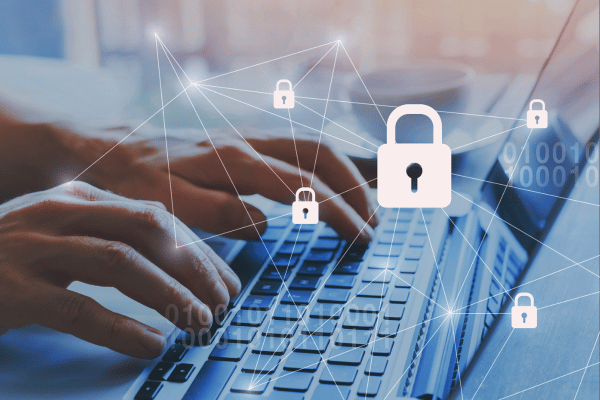Cyber Security
- Home
- Cyber Security
Key Aspects of Cybersecurity
Cybersecurity refers to the practice of protecting computer systems, networks, and digital assets from unauthorized access, cyberattacks, and data breaches. In an increasingly digital world where businesses and individuals rely heavily on technology, cybersecurity is of paramount importance to safeguard sensitive information, privacy, and the integrity of digital systems. Here are some key aspects of cybersecurity:
Data Protection: One of the primary objectives of cybersecurity is to protect sensitive data, including personal information, financial records, intellectual property, and confidential business data. This involves encryption, access controls, and secure storage methods.
Threat Detection: Cybersecurity measures include systems and tools for identifying and detecting threats and vulnerabilities. Intrusion detection systems (IDS) and intrusion prevention systems (IPS) are commonly used to monitor network traffic for suspicious activities.


Access Control: Limiting access to digital resources based on user roles and permissions is essential. Strong authentication methods, such as multi-factor authentication (MFA), are used to verify the identity of users.
Firewalls: Firewalls act as barriers between a trusted internal network and untrusted external networks (e.g., the internet). They filter incoming and outgoing network traffic to block malicious or unauthorized access.
Antivirus and Anti-Malware: Antivirus software and anti-malware programs are designed to detect, prevent, and remove malicious software (viruses, worms, trojans, etc.) from computers and networks.
Patch Management: Regularly updating software, operating systems, and applications is crucial to closing known security vulnerabilities. Cybercriminals often exploit unpatched systems.
Security Awareness Training: Human error is a common cause of security breaches. Training employees and users to recognize phishing attempts and follow security best practices is essential.
Incident Response: Organizations should have a well-defined incident response plan in place to quickly and effectively address security incidents when they occur. This includes steps for containing, investigating, and recovering from breaches.


Encryption: Encrypting data in transit and at rest ensures that even if unauthorized access occurs, the data remains unreadable without the encryption keys.
Security Audits and Compliance: Regular security audits and compliance assessments help organizations ensure that they meet industry-specific security standards and regulatory requirements.
Cybersecurity Policies: Establishing and enforcing cybersecurity policies and procedures within an organization is critical. These policies provide guidelines for safe behavior and accountability.
Mobile Device Security: As mobile devices become ubiquitous, securing smartphones and tablets is vital. This includes securing apps, enforcing passcode policies, and enabling remote wipe capabilities for lost or stolen devices.
Cloud Security: Protecting data and applications hosted in the cloud is essential. Cloud security measures include identity and access management, encryption, and regular security assessments.
IoT Security: The Internet of Things (IoT) introduces new security challenges due to the proliferation of connected devices. Securing IoT devices and networks is a growing area of concern.
Collaboration with Security Experts: Many organizations collaborate with cybersecurity experts, penetration testers, and ethical hackers to identify vulnerabilities and weaknesses in their systems before malicious actors do.
Cybersecurity is an ongoing process that evolves alongside emerging threats and technologies. It requires a proactive approach, continuous monitoring, and adaptation to stay ahead of cybercriminals and protect digital assets effectively.

Our Expertise
Our cybersecurity services enable you to proactively combat cyber threats with a comprehensive strategy and cutting-edge solutions, ensuring that your brand remains secure and your customers are satisfied. We not only develop robust security systems but also foster a culture of cyber trust to prevent phishing attacks that are becoming more frequent and easy to execute.
Our services offer a holistic view of your organization’s security landscape, enabling us to identify and eliminate existing vulnerabilities and promptly detect and resolve any threats. With Accolite as your partner, you can focus on driving innovation, transformation, and growth while safeguarding your business environment and planning for expansion.
Identity and Access Management
Security Operations Center (SOC)
DevSecOps
Virtual CISO
Our experience company can provide you with a range of cyber security services to help you protect your business from potential threats. With our expertise and knowledge, we can help you identify vulnerabilities, mitigate risks, and respond to security incidents quickly and effectively.



